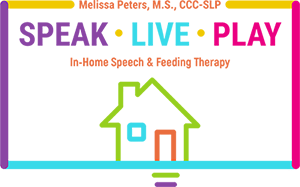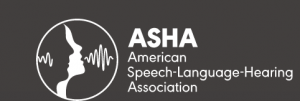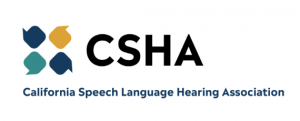What is Apraxia of Speech?
Acquired Apraxia of Speech (AOS) is a neurological condition that impairs the coordination of the muscles used for speaking, leading to difficulties in speech production and articulation. It disrupts the communication between the brain and the mouth, leading to difficulties in coordinating the lips and tongue to articulate sounds accurately. Although the muscles themselves are typically unaffected, individuals with AOS struggle to regulate them effectively. Consequently, initiating and sequencing the sounds required to form words becomes a challenging task.
Apraxia of speech can range from a mild inconvenience that doesn’t greatly hinder communication to a profoundly debilitating condition. It can be incredibly frustrating to have thoughts and ideas locked within, unable to find expression. In severe cases, individuals may struggle to produce any sounds or words at all.
Apraxia manifests in various forms. One such example is oral Apraxia, which hampers voluntary control of the mouth’s muscles. While automatic movements like yawning and sneezing remain unaffected, difficulties arise with actions requiring intention, such as chewing or smiling. Additionally, different types of Apraxia can impact an individual’s capacity to perform tasks like dressing, washing, or utilizing specific muscle groups.
Apraxia in Adults
Apraxia, also referred to as Apraxia in Adults, is a speech disorder that is caused by brain damage, leading to difficulties in coordinating the mouth and tongue. It’s like an orchestra out of sync, where the brain struggles to communicate with the mouth. Individuals with Apraxia experience this frustrating disconnection, hindering their ability to articulate thoughts and words effectively.
Sometimes, people with Apraxia of speech also have trouble moving their mouth and tongue correctly, which is called oral Apraxia. It can be really frustrating because they want to talk, but their brain has trouble making the right movements.
Apraxia of speech can also come with other difficulties. For example, some people with Apraxia may have trouble understanding and speaking language, which is called aphasia. Others might have slurred speech, known as dysarthria.
If someone you know has Apraxia, it’s important to know that there’s help available. Speech therapy can make a big difference. Expert therapists at Speak Live Play are there to help. They have the knowledge and experience to work with people with Apraxia and help them improve their speech skills.
Remember, if you or someone you know is struggling with Apraxia, reach out to Speak Live Play for expert therapists who can help you!
What Causes Apraxia in Adults?
Apraxia in Adults, also known as acquired Apraxia of speech, occurs when the part of the brain that controls coordinated muscle movement gets damaged. This can happen due to a stroke, head injury, brain tumors, dementia, or other progressive neurological disorders. It’s like when the brain’s instructions for talking get mixed up.
But don’t worry! Speech therapy can help. Experts at Speak Live Play can work with you to improve your speech and overcome Apraxia. They have skilled therapists who know exactly how to help you. So, if you or someone you know is experiencing Apraxia, reach out to Speak Live Play for the best help and support! Remember, you’re not alone in this journey.
What You Might Notice
Apraxia in Adults, also known as speech apraxia, is a condition where someone has trouble moving their tongue, lips, and jaw when they try to speak. It’s like their mouth gets confused and makes awkward movements. This makes their speech slow and choppy, not flowing smoothly like most people’s.
The tricky thing about Apraxia is that the mistakes are different each time. Sometimes, a person with Apraxia can say a word correctly once but then struggle to say it again. It’s like the words get jumbled up in their mouth.
But here’s the cool part – when a person with Apraxia is relaxed and not trying too hard, everyday phrases come out more easily. It’s like magic! However, longer or harder words can still be a challenge.
If you or someone you know is dealing with Apraxia, don’t worry! There are amazing speech therapists out there who specialize in helping people with Apraxia. One place you can reach out to is Speak Live Play. They have expert therapists who can work with you to improve your speech and communication skills.
Remember, Apraxia is tough, but with the right help and support, you can overcome it and become a confident communicator.
If You Have Apraxia
Apraxia in Adults can get better with Speech Therapy. It may be hard, but you can learn to talk again. Imagine talking like you used to with the help of expert therapists at Speak Live Play. They can teach you how to say words and communicate better. So, don’t worry; you’re not alone in this journey!
Here are some valuable tips that many individuals with Apraxia of speech have found beneficial:
1. Speak at a deliberate pace. Please take a moment to gather your thoughts before expressing them.
2. Divide lengthy words and phrases into smaller segments. Utilizing shorter words might be more manageable.
3. Employ facial expressions and gestures to enhance message clarity. Pointing or even drawing illustrations can help convey your intended meaning.
4. If you encounter difficulty articulating something, consider expressing it differently. Sometimes, rephrasing can facilitate effective communication.
5. Give singing a try. Incorporating melody can aid in enunciating words with clarity.
6. Stay composed. Set aside challenging conversations for the time being and return to them later. Avoid engaging in important discussions when fatigued or experiencing intense emotions.
7. Jot down your thoughts or employ an augmentative communication system to convey your message effectively.
Remember, these strategies can assist in improving your communication skills while preserving the original intent.
4 Ways to Help Someone with Apraxia
When it comes to supporting someone with Apraxia, the role of family and friends cannot be overstated. There are various strategies you can employ to assist them in their communication journey:
1. Patience is key. Allow ample time for the person to express themselves.
2. Establish a clear topic to ensure mutual understanding.
3. Utilize yes-or-no questions or provide multiple choices to help clarify their message.
4. If you need clarification on something, rephrase what you’ve understood and seek confirmation. Focus on addressing any remaining areas that require clarification. Avoid pretending to comprehend their message. Instead, consider trying a different approach or agreeing to revisit the topic later.
Remember, your support and understanding can make a tremendous difference in their ability to communicate effectively.
Speech Therapy At Speak Live Play
In conclusion, Apraxia of Speech is a challenging condition that affects one’s ability to communicate effectively. However, with the help of expert speech therapists at Speak Live Play, individuals with Apraxia can overcome these difficulties and improve their speech skills. If you or someone you know is struggling with Apraxia, don’t hesitate to reach out to Speak Live Play for the best help and support. Remember, you’re not alone in this journey. Take action now and start your path toward becoming a confident communicator!





